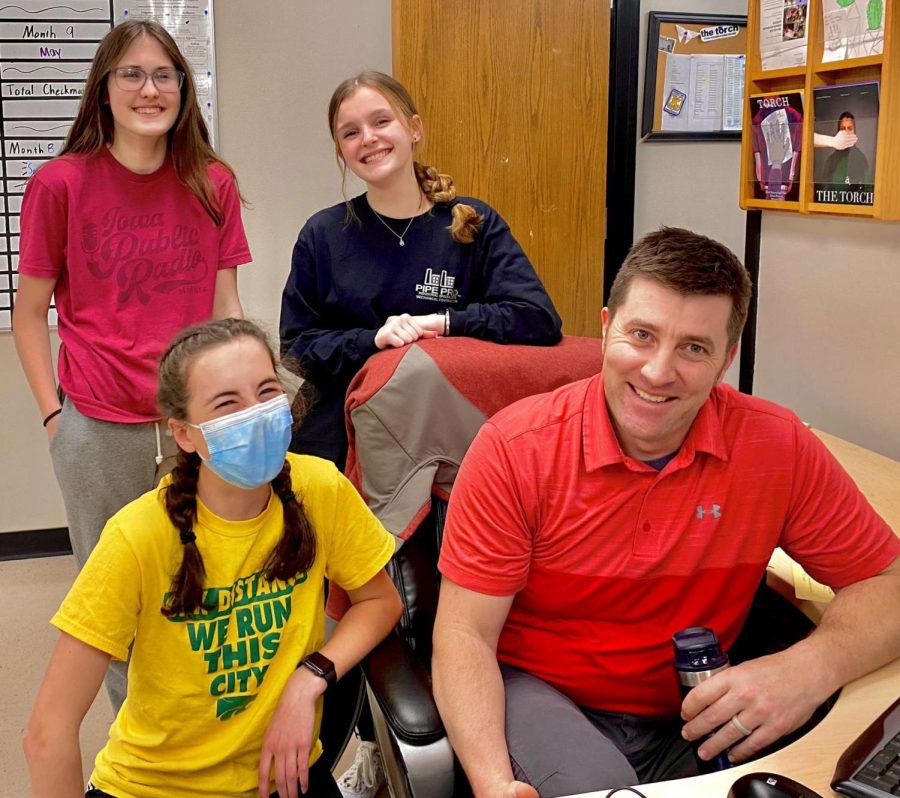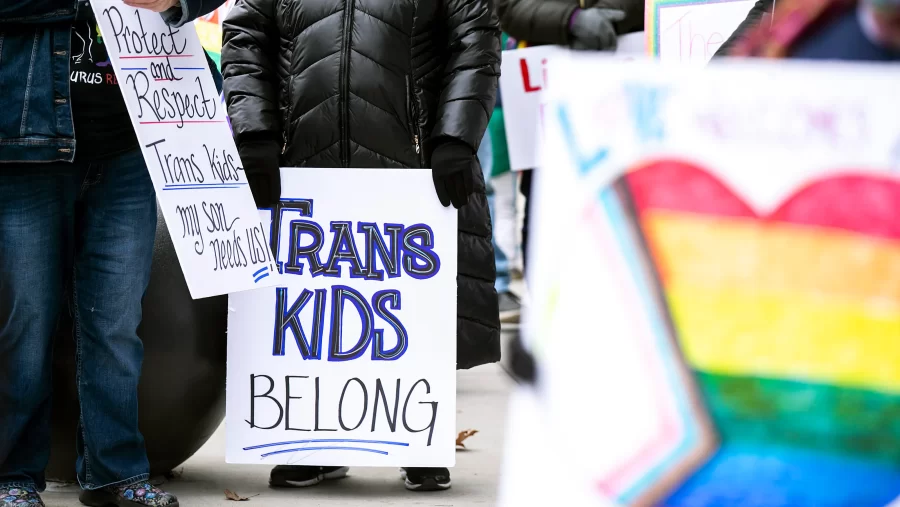Overcoming an eating disorder
A picture posted on social media by Megan Wagner, sr., drew attention to many students. This photo was of her body and the message was to send out the word of body love and national eating disorder awareness.
When Wagner decided to post the picture she did not expect all of the positive comments people made of her body image to blossom. The positive comments and support were not what she was going for, but instead she wanted everyone to be aware of the body positivity she was sending.
“I thought if my small message reached even one person struggling, it was worth posting,” Wagner said.
An eating disorder develops when one is concerned about his or her body shape or weight characterized by irregular eating habits. There are multiple types of eating disorders that anyone can develop but more importantly, the road to recovery with an eating disorder starts when you become strong enough to admit you have a problem.
“When a friend noticed, I was mortified that someone knew and decided that if I continued like this for much longer there were going to be worse long term effects, and that wasn’t how I wanted to live anymore,” Wagner said.
Social media can often play as a huge part leading up to eating disorders, due to the high expectations of body images that are often portrayed. From posts you see on social media of models with the ideal expectation of a perfect body, to people you see every day can have an in-depth effect on one’s health.
“I think part of social media that was detrimental to me was that I never got away from it, because it’s with you all the time, constantly reminding you that you don’t look the way you think you should,” Wagner said.
With eating disorders there come physical and mental effects that can be damaging to your own health, many struggle with emotional and behavioral signs like: food/weight concern, uncomfortableness, and denial of being hungry. Common physical signs of eating disorders contain: noticeable fluctuations in weight, self-induced vomiting, and fainting from dehydration and malnutrition.
“I didn’t want to drink water until I passed out, I didn’t want younger kids to see and think what I was doing, was ok or the norm,” Wagner said.
Learning to nourish your body in all of its forms by finding your self-confidence while accepting yourself in your own body is the way to self-empowerment. It is not the easiest thing to do but finding even a few things that you love about your self will lead to you learning how to accept yourself for who you are.
“It’s not easy but it gets better, not all at once, and not in a day, but it will if you allow it to,” Wagner said.
If you or anyone you know is going through an eating disorder or is having concerns, The National Eating Disorder Association provides a helpline just a click away to anyone who may be interested in support. Overcoming an eating disorder first takes you to make the first movement to becoming a better you in your own body.
“Along with struggling and the physical effects, there were mental effects as well and knowing that I alone overcame something that was so detrimental to my physical health and mental health is the greatest victory,” Wagner said.
Your donation will support the student journalists of Kennedy High School - IA. Your contribution will go towards the purchase of a new lens for our photographers.







































